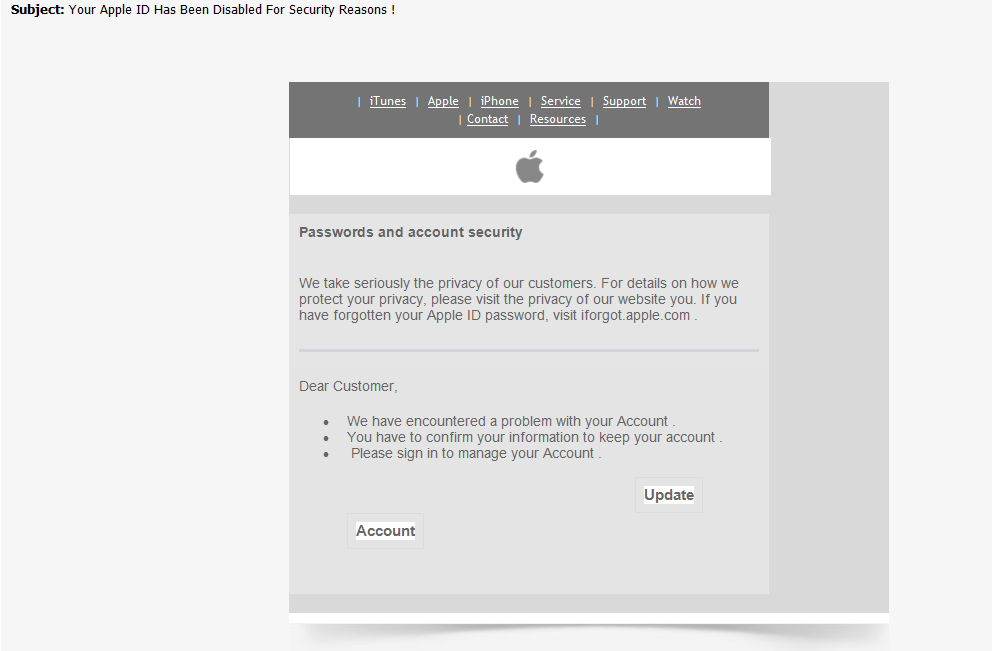
WASHINGTON — Maybe you’re hunkered down, anticipating the snowstorm that’s been predicted. While you’re busy stocking up on de-icer and toilet paper and charging your electronics, cyber crooks are busy too.
“It’s never too cold for cyber criminals to go phishing,” says Eric Friedman, director of Montgomery County’s Office of Consumer Protection. Friedman says phishing schemes crop-up over and over again, sometimes with a variation on a theme. In the latest, a fraudster poses as the Apple corporation, telling customers their AppleID has been disabled — complete with exclamation points in the subject line of the email.
Friedman says such emails ask for sensitive information: passwords and credit card numbers. They nearly always contain links. But never click on the link, says Freidman.
“You don’t want to get hooked. Like any fish, once you’re hooked, it’s really tough to get off of that line.”
Friedman says, if you didn’t initiate the contact, that should give you pause. Likewise, if the email contains typos or odd grammatical structure, assume that someone’s phishing. If the email came from someone you do business with, like your bank or Internet service provider, contact them and let them know. Businesses suffer when scammers pose as the real thing, and you may help the spread of someone’s cyber scheme.
Friedman says cyber crooks should be reported to the FTC or APWG.
Tax season is a prime time for phishers. The IRS has tips to keep safe here.
Anyone who thinks they’re experience phishing related to Apple should click here.
Individual banks may also have a specific page and information on phishing and will likely notify you if they find their customers have been subject to phishing activity.
WTOP’s Kate Ryan contributed to this report.







